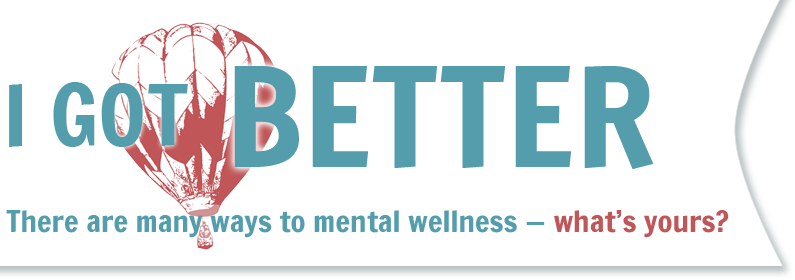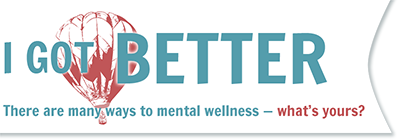Recovery Isn’t Just Personal

Yes. I have felt so much more hopeful in the past year or so after finding a student group that is designed for students with mental health labels to get support and take part in psychiatric survivor advocacy. I have a community now — I’m not alone anymore. This community accepts me regardless of whether or not I am on medications, seeing a “professional,” crying “too much,” flapping my hands, etc.
During your mental health care, have you often felt hopeless about your chance of getting better?
Yes. I feel hopeless when I get up the courage to ask for what I need and am told that I can’t have it because I am “too high functioning”. Since I’m autistic and also labeled “mentally ill”, nobody knows what to do with me. The autism people either tell me that I am “too high functioning” for help, or to go to the mental health people. The mental health people find out about the autism, and tell me to go to the autism people. I have contacted 8-10 different service providers/organizations over the past 18 months or so, and they keep referring me to each other. Nobody seems to know what anyone else is doing. I sent an email to the government agency in charge of developmental disabilities (just to get information), and although I did not apply formally for services, I was sent a formal rejection letter on the basis of being “too high functioning”. I have been told that the developmental disability people will consider “high functioning” people for services if you also have a mental health label, but nobody has been able to confirm that. I am frustrated.
Has a mental health provider ever told you that you could reach a personal goal despite your psychiatric diagnosis (for example, education, career, independent housing, relationship, children, etc.)?
Yes. My therapist is WONDERFUL. She always respects my autonomy, and listens to me when I explain what is helpful and what is not helpful. I am flying across the continent in a few days to go to a conference, and I’m incredibly nervous, but she has tried very hard to support me throughout the process of making the arrangements to go.
Has a mental health provider ever told you that you could not reach a personal goal because of your psychiatric diagnosis (for example, education, career, independent housing, relationship, children, etc.)?
Yes. After knowing me for 20 minutes or less, a ‘professional’ discouraged my interest in dog training because “It’s not the kind of thing autistic people are usually good at.”
Tell us what recovery means to you. How would you define recovery from mental health or emotional problems in your own words?
Recovery means that you can live the way you want to, with ways to handle the parts you find negative about being mad, and celebration of the parts you find positive about being mad/different. It means you are surrounded by those who love you, whether human or other species, and these beings respect the various parts of you and your various ways of being without automatically pathologizing. Recovery doesn’t mean you’re “better”/”not ill”/not mad; to me, it means that you can still be your glorious mad self, but have the support to handle challenging stuff. Recovery isn’t just personal, or the responsibility of the individual. Each time we treat each other with respect and work out of an anti-oppression perspective, we are helping each other and helping society. In that respect, we should be talking about recovery as it applies to society as a whole, not just individuals.
If you could send a brief message to someone receiving mental health care today who is feeling hopeless about getting better, what would you say?
You’re not alone.


